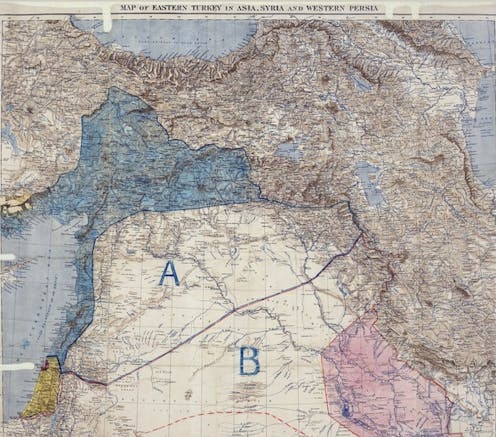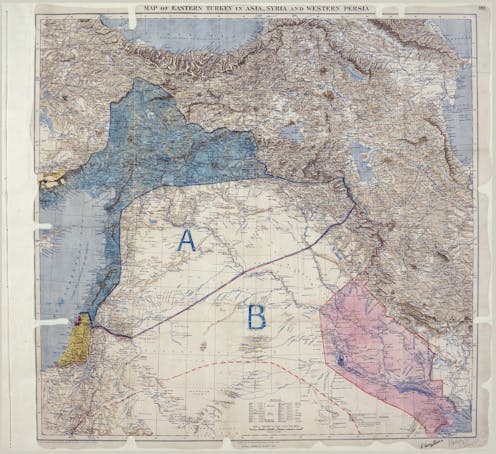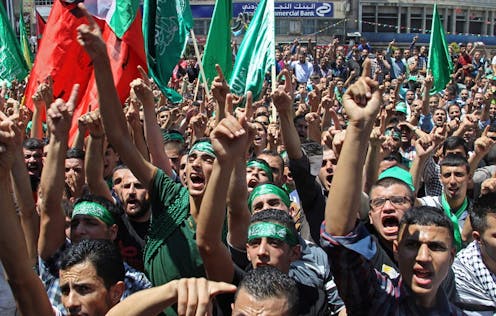Lovely review by Ala Abbas in The Muslim News of my book with James Renton on antisemitism and Islamophobia.

Lovely review by Ala Abbas in The Muslim News of my book with James Renton on antisemitism and Islamophobia.
A lovely short review of Antisemitism and Islamophobia in Europe: A Shared Story? by Scott Ury in Religious Study Review.
Volume44, Issue3 Special Issue: Biblical Translating and Interpreting September 2018 Pages 344-344
By my co-author James Renton in Ha’aretz. Extract:
In our current age of populism, the expert is much maligned. The UK government minister and Brexit champion Michael Gove famously declared in 2016 that “People in this country have had enough” of them. In the United States and on the world stage, Donald Trump’s presidency is the embodiment of anti-intellectualism. Shooting (quite literally) from the hip is the order of the day.
The side-lining, or absence, of experts in public debate has been particularly marked in the furor over anti-Semitism and other racisms in the last few years. This is no coincidence; populism is a result and vehicle of multiple crises of racism around the world.
We (the experts) must respond. As a big step in this direction, the European University Institute in Florence, Italy has launched an online magazine to bring academic expertise on racism to global public debate, collaborating with NGOs, policymakers, and public institutions such as museums….
Earlier this year, our magazine co-organized with the All-Parliamentary Group Against Antisemitism an event at Westminster on anti-Jewish and anti-Muslim prejudice. The research briefing emphasised the complexities of how these two racisms have been connected (but also distinctive) over the last millennium.
This research shows that focusing on only one racism in one political party in one country means missing a crucial context: a much bigger, inter-connected European and global picture of multiple racisms across political divisions. This is the sort of expertise that could change completely public debate, and it needs to be known.
For all posts on our book Antisemitism and Islamophobia in Europe: A Shared Story? click here.
From Monitor:
In 2017, antisemitism and Islamophobia were, along with other racisms, on the rise
around the world. In Charlottesville in the United States, far-right militants marched chanting against the world Jewish conspiracy. In Myanmar, Muslims fled for their lives to Bangladesh. In the UK and Europe, these racisms also continue to flourish. But are they connected? In the aftermath of 9/11, controversy has raged about whether Islamophobia is the new antisemitism.
MONITOR chose this pressing issue for its first public event. The location: the UK’s Houses of Parliament, hosted by the All-Party Parliamentary Group Against Antisemitism.
The magazine aims to bring cutting-edge research into global public debate, and this collaboration was the ideal place to start. The Editor, Monica Gonzalez Correa, flew in especially from Florence.
Podcast:

10 January 2018 10 am-11.30
This event presents recent academic research findings, based on the book Antisemitism and Islamophobia in Europe: A Shared Story?, newly published by Palgrave Macmillan and edited by Dr James Renton (Edge Hill University/European University Institute, Florence) and Dr Ben Gidley (Birkbeck, University of London). The discussion, aimed at politicians, policy-makers and civil society, will focus on questions such as:
For details of the book, see http://www.palgrave.com/gb/book/9781137412997.
Hosted by the All-Party Parliamentary Group Against Antisemitism. Co-organised by Monitor: Global Intelligence on Racism, based at the Robert Schumann Centre for Advanced Studies at the European University Institute.
The event introduced and chaired by Nusrat Ghani MP, will include a short presentation of research by the co-editors, followed by a panel discussion and questions. Panellists will be Omar Khan (Runnymede Trust), Karen Pollock MBE (Holocaust Educational Trust) and Danny Stone MBE (Antisemitism Policy Trust).
Please email Ben to register to attend.
By my co-author James Renton in Ha’aretz. Extract:
President Donald Trump’s retweeting of anti-Muslim videos propagated by Britain First has made millions more people around the world aware of the European far-right’s crude Islamophobia.
Is this racism a retargeting of familiar tropes of anti-Semitic hatred? Or does anti-Muslim and anti-Jewish hatred have a more complex relationship, both in history and in our current moment?
Prejudice toward Islam and Muslims is endemic in the Europe of 2017. The “Muslim Question” is central to the politics of the far right, which has achieved success unprecedented since WWII at the polls this year, from France to the Czech Republic via Austria and Germany.
More significantly, the fear of Muslims as potential terrorists has become an integral part of mainstream European politics and the European security state, as has been identified by Amnesty International, among others.
Several commentators and academics have argued that this groundswell of Islamophobia, which began in earnest with the “war on terror” after 9/11 and has gathered pace since 2015, has made Muslims the “new Jews” of Europe. They contend that today’s emergency is redolent of the anti-Semitism of the 1930s, or of the late 19th century.
For all posts on our book Antisemitism and Islamophobia in Europe: A Shared Story? click here.
Oct 26, 2017 / 18:00 – 19:00 / VILLA SASSETTI
Are today´s Muslims Europe’s “new Jews”? Is Islamophobia the same as, or an aspect of, Antisemitism? Controversy over this question has raged over the last decade or so. From a historical point of view, is there a dynamic relationship between Antisemitism and Islamophobia and, if so, how has it evolved over time and space? Religion, empire, nation-building and war, they have all played their part in the complex evolution of this relationship. What does Europe have to say about the fact that Jews and Arabs were once called Semites, but are now widely thought to be on two different sides of the “War on Terror”?
Historian James Renton and the EU Coordinator on Combatting Antisemitism, Katharina von Schnurbein, will debate the relationship btween the two racisms and Europe’s response to it.
Moderated by Marcella Simoni, Ca’ Foscari University of Venice, Moderator

In this talk, Dr James Renton will discuss how the Balfour Declaration transformed what it meant to be a Jew in the world. Rather than a story of Jewish empowerment, he will argue that this revolution was shaped by the interests and power of imperial states and a global political system. At its heart, the talk will grapple with the controversial question of how much control do Jews have over their own identity?
In October 1917, only a minority of Jews believed in Zionism, and many were strongly opposed. Jews who were desperate to be accepted as loyal citizens in the countries that they called home were horrified by the idea of a Jewish nation. Even those who were indifferent to Zionism shared the mainstream assumption that the movement was a utopian dream. This situation changed overnight with the Balfour Declaration- an event that permanently altered the politics of being a Jew.
Dr James Renton is the author of The Zionist Masquerade: The Birth of the Anglo-Zionist Alliance, 1914-1918, and co-editor with Ben Gidley of Antisemitism and Islamophobia in Europe: A Shared Story? He is Reader in History at Edge Hill University and Visiting Fellow at the European University Institute.

About the book
This is the first book to examine the relationship between European antisemitism and Islamophobia from the Crusades until the twenty-first century in the principal flashpoints of the two racisms. With case studies ranging from the Balkans to the UK, the contributors take the debate away from politicised polemics about whether or not Muslims are the new Jews. Much previous scholarship and public discussion has focused on comparing European ideas about Jews and Judaism in the past with contemporary attitudes towards Muslims and Islam. This volume rejects this approach. Instead, it interrogates how the dynamic relationship between antisemitism and Islamophobia has evolved over time and space. The result is the uncovering of a previously unknown story in which European ideas about Jews and Muslims were indeed connected, but were also ripped apart. Religion, empire, nation-building, and war, all played their part in the complex evolution of this relationship. As well as a study of prejudice, this book also opens up a new area of inquiry: how Muslims, Jews, and others have responded to these historically connected racisms.
Participants:
Benjamin Gidley, Senior lecturer, Birkbeck, University of London
James Renton, Reader in History, Edge Hill University, Visiting Fellow, European University Institute
Lecture organized by Jean-Philippe Dedieu, historian and sociologist, professor in the Columbia MA in History and Literature.
Free and open to the public
Pears Institute Lunchtime Seminar
| Speaker: | Ben Gidley, Birkbeck, University of London |
| Date: | Tue, Oct. 10, 2017 |
| Time: | 1:00pm – 2:00pm |
| Venue: | Birkbeck, University of London |
| Free event for scholars: | Email pearsinstitute@bbk.ac.uk for further information. |
| Details: | This paper, drawing on a newly published book edited by James Renton and Ben Gidley, explores the changing ways the figures of the Jew and the Muslim have been used to mark the borders of European identity – an identity that remains normatively Christian despite a rhetorical drift to secularism, the “Judeo-Christian” or the multifaith. The paper argues that these two figures have been constitutive outsiders shaping what Europe is. Both forms of racialisation have mutated over time and in different parts of the continent, and understanding this, the paper argues, requires a rigorously comparative and rigorously diachronic perspective. Each form of racialisation has occurred independently of the other, but more often they have taken on meaning in relation to each other, and so analysing both anti-Jewish and anti-Muslim racism is enhanced through case studies which excavate their relationship |
Der Balfour-Spezialist
Der Historiker James Renton forscht derzeit in Florenz – sein Schwerpunkt ist die Erklärung von 1917
10.08.2017 – von Daniel Zylbersztajn
 Der britische Historiker James Renton (41)
Der britische Historiker James Renton (41)© Daniel Zylberstein
Eigentlich ist er Regenwetter und Gummistiefel gewöhnt, denn sein Arbeitsort ist die Fakultät für Geschichte an der Edge Hill University in der Nähe von Liverpool. Doch stattdessen sitzt James Renton (41) an einem schönen sonnigen Tag an einem Schreibtisch in Florenz. Große Fenster zeigen das Panorama einer sonnigen Hügellandschaft voller Pinien- und Olivenbäume.
Very excited that two book projects that have been very close to my heart for some time are both moving towards publication. First, in a few months, Antisemitism and Islamophobia in Europe: A Shared Story?, edited with James Renton (actually he did far more of the work than me) will be out with Palgrave.
This is the first book to examine the relationship between European antisemitism and Islamophobia from the Crusades until the twenty-first century in the principal flashpoints of the two racisms. With case studies ranging from the Balkans to the UK, the contributors take the debate away from politicised polemics about whether or not Muslims are the new Jews. Much previous scholarship and public discussion has focused on comparing European ideas about Jews and Judaism in the past with contemporary attitudes towards Muslims and Islam. This volume rejects this approach. Instead, it interrogates how the dynamic relationship between antisemitism and Islamophobia has evolved over time and space. The result is the uncovering of a previously unknown story in which European ideas about Jews and Muslims were indeed connected, but were also ripped apart. Religion, empire, nation-building, and war, all played their part in the complex evolution of this relationship. As well as a study of prejudice, this book also opens up a new area of inquiry: how Muslims, Jews, and others have responded to these historically connected racisms.
The volume brings together leading scholars in the emerging field of antisemitism-Islamophobia studies who work in a diverse range of disciplines: anthropology, history, sociology, critical theory, and literature. Together, they help us to understand a Europe in which Jews and Arabs were once called Semites, and today are widely thought to be on two different sides of the War on Terror.
Here are the contents:
1 Introduction: The Shared Story of Europe’s Ideas of the Muslim and the Jew—A Diachronic Framework | James Renton and Ben Gidley
Part I Christendom
2 Ethnic and Religious Categories in the Treatment of Jews and Muslims in the Crusader States | Andrew Jotischky
3 Antisemitism, Islamophobia and the Conspiracy Theory of Medical Murder in Early Modern Spain and Portugal | François Soyer
Part II Empire
4 Fear and Loathing in the Russian Empire | Robert D. Crews
5 The End of the Semites | James Renton
Part III Divergence
6 The Case of Circumcision: Diaspora Judaism as a Model for Islam? | Sander L. Gilman
7 Islamophobia and Antisemitism in the Balkans | Marko Attila Hoare
8 Antisemitism and Its Critics | Gil Anidjar
Part IV Response
9 Antisemitism, Islamophobia and the Search for Common Ground in French Antiracist Movements since 1898 | Daniel A. Gordon
10 The Price of an Entrance Ticket to Western Society: Ayaan Hirsi Ali, Heinrich Heine and the Double Standard of Emancipation | David J. Wertheim
11 The Impact of Antisemitism and Islamophobia on Jewish–Muslim Relations in the UK: Memory, Experience, Context | Yulia Egorova and Fiaz Ahmed
Further in the future, my first sole-authored monograph, Citizenship and Belonging: East London Jewish Radicals, has a publication date with Manchester University Press in the Racism, Resistance and Social Change series edited by John Solomos, Satnam Virdee and Aaron Winter.
Racism, Resistance and Social Change is committed to providing a forum for the publication of challenging and innovative scholarship on questions about race, racism and ethnic relations. We have seen intense debate about these issues both globally and within particular geopolitical environments. Our main objective in this series is to provide a forum for scholars from a range of theoretical and political perspectives to publish their work and to develop a dialogue that has an international and multidisciplinary focus. We aim to publish both theoretically driven research as well as research with a more historical and empirical frame.
Authors will be asked to address at least one central theme:
- Mapping the changing forms and nature of racism in the contemporary age
- Understanding racism over the longue duree, or re-connecting the present to the past
- Anti-racism as intellectual and social movement
Forthcoming Books in series:
- Margarita Aragon, African and Mexican American Men and Collective Violence, 1915-1965: Racial problem headaches (Autumn 2017)
- Ben Gidley, Citizenship and belonging: East London Jewish Radicals 1903-1918 (winter 2017)
Series Editors: John Solomos, Warwick University, Satnam Virdee, University of Glasgow and Aaron Winter, University of East London,
by Milena Rampoldi, ProMosaik e.V. – My interview with Dr James Renton,
Dr James Renton is Reader in History at Edge Hill University, UK, and co-editor, with Ben Gidley, of Antisemitism and Islamophobia: A Shared Story?, which is forthcoming with Palgrave Macmillan.
Milena Rampoldi: How would you define anti-Semitism and Islamophobia. Which are the common aspects, what are the main differences between them?
James Renton: At base, we can use the terms anti-Semitism and Islamophobia as straight forward labels for anti-Jewish and anti-Muslim racisms. But can we offer a fixed definition of these two fields of prejudice? The histories of the terms themselves tell us something of value in this connection. Within these stories, we find helpful insights into the complex relationship between the two: their differences, similarities, and, significantly, connections. It is essential, however, that any such discussion of this subject acknowledges that European ideas about Jews and Muslims, about Judaism and Islam, do not stand still. They are dynamic, like any field of human thought. We must not treat them as fixed prejudices that operate outside of time, or indeed place. Certainly, both racisms possess very powerful continuities, which are hugely important. But the interplay between these underlying structures of thought and the dynamism of cultural, political, social, and economic change must not be ignored.
The word ‘anti-Semitism’ was invoked at the end of the nineteenth century, at a time in which the pseudo-science of race predominated in European political thought. Jews and Judaism were at the forefront of Europe’s imagined political problems in this period— or Questions to use the terminology of the day— that demanded solutions. The process of Jewish emancipation (incomplete as it was) in central and Western Europe became a focus of ire in these zones as societies grappled with profound economic and political crises and transformation: from depression and warfare in Europe (particularly Germany’s defeat of France in 1870) to concomitant escalating conflict between European imperial states over resources and territory in Africa and Asia.
The ceasefire in Syria has not paused the war being waged by EU member states against Islamic State (IS) in that country. The air forces of France, Britain and the Netherlands have not been put on standby. They continue in their efforts to kill members of the group and destroy its resources and military infrastructure. At first sight, therefore, the war against IS appears to be a special case, something distinct from what is happening in Syria and indeed the wider Middle East. Is, though, the conflict against IS the only, or even the most significant, of Europe’s wars in the region that cannot be interrupted?
When François Hollande stood before the French parliament at Versailles after last November’s attacks in Paris and said, “France is at war,” which enemy did he have in mind? Who, exactly, is France at war with? Hollande did not tell us straight away; the enemy did not require immediate explanation, but he went on to set it out for us: the enemy, Hollande argued, is “jihadist terrorism” which threatens “the entire world.”


